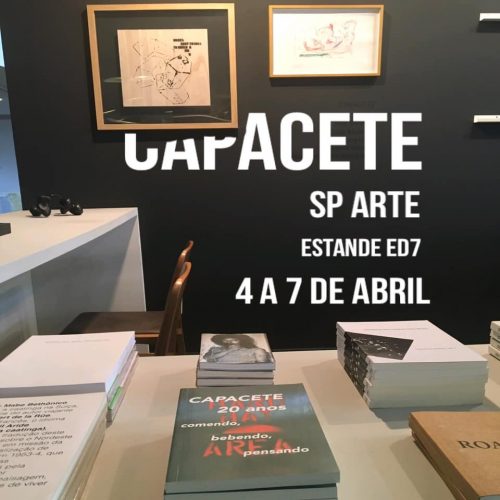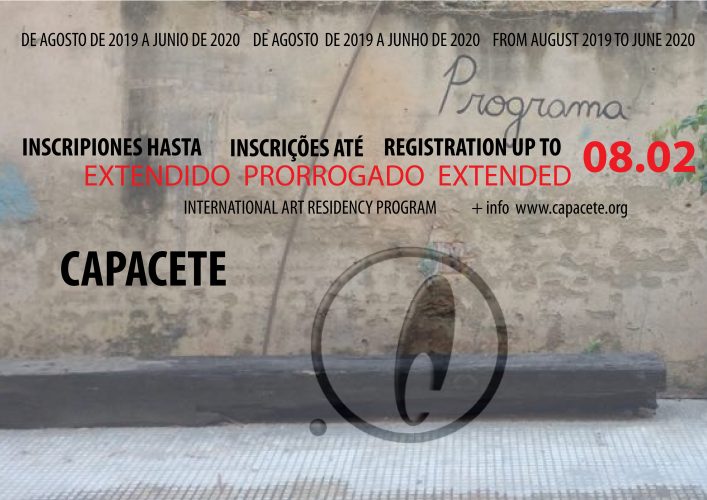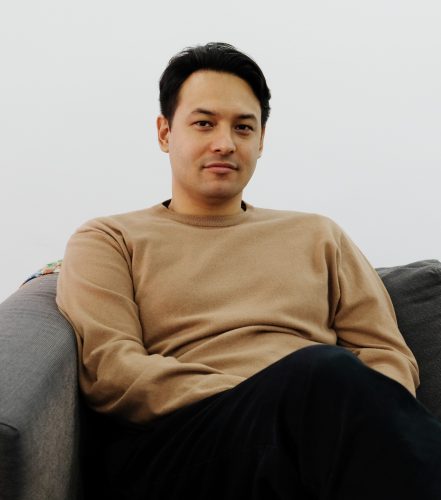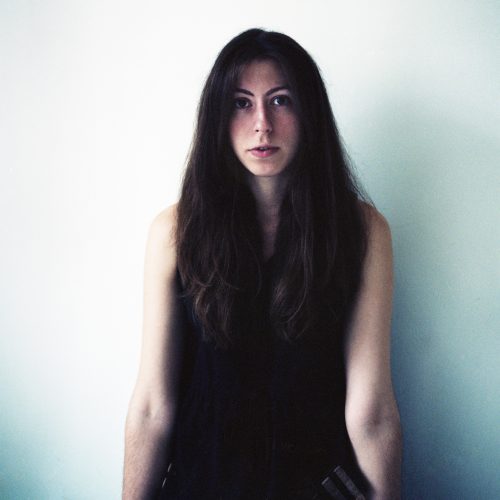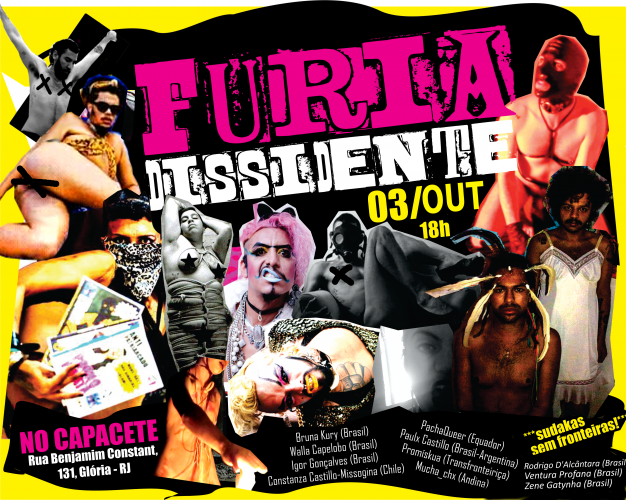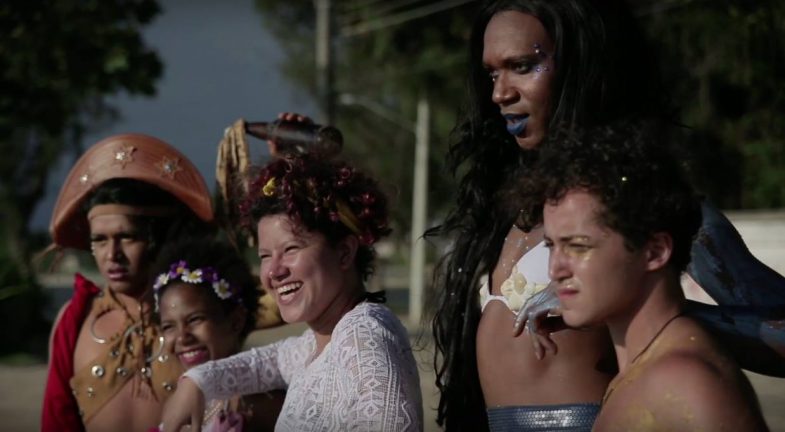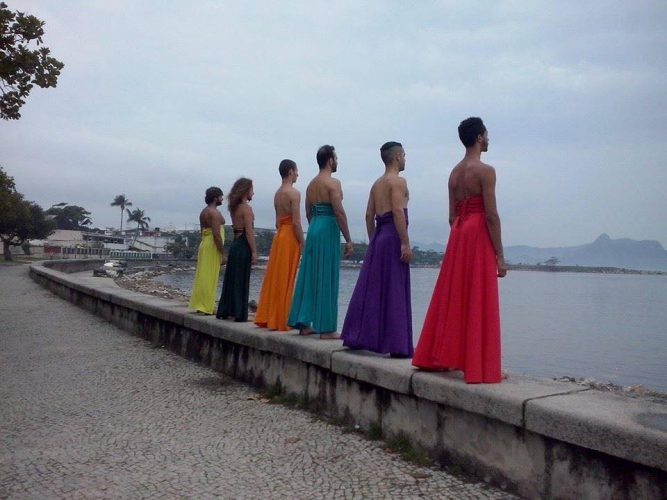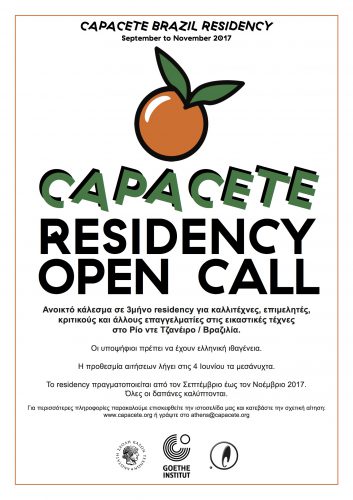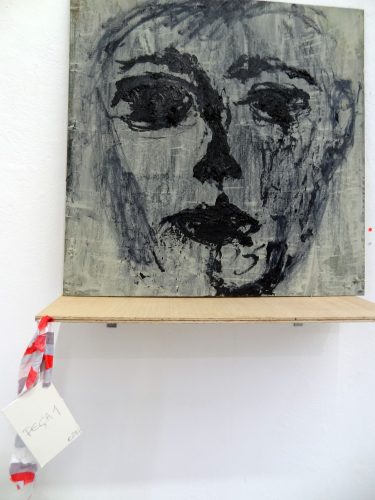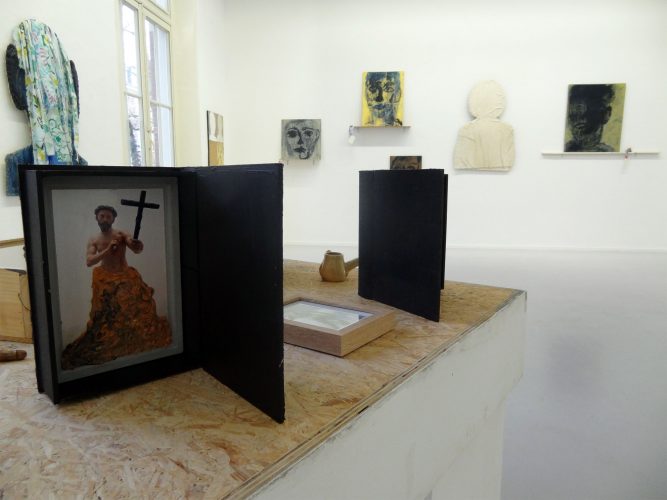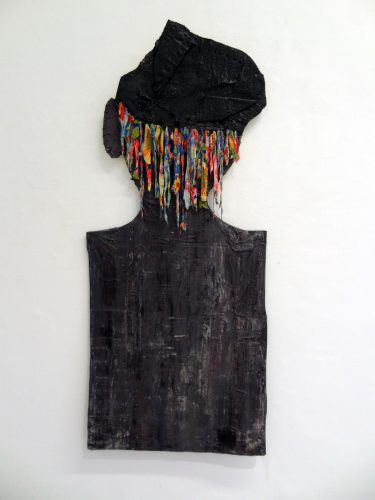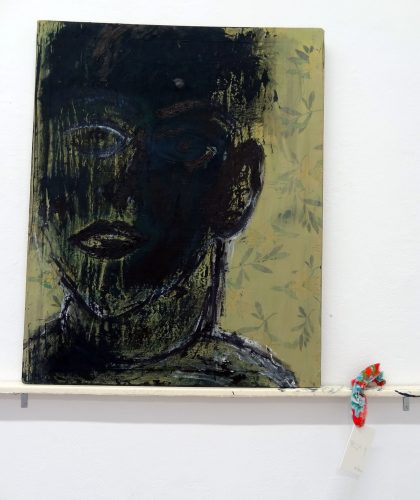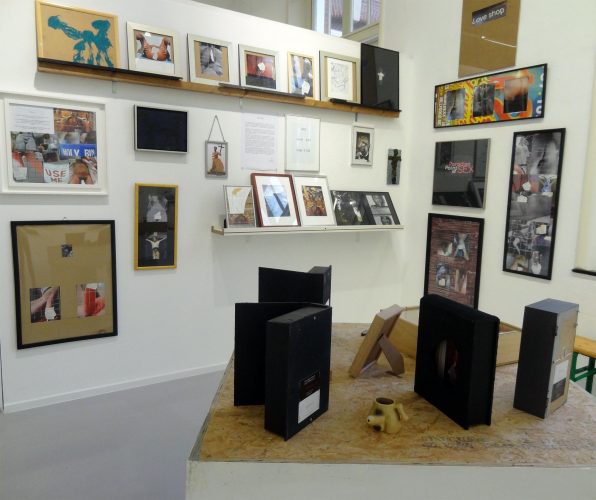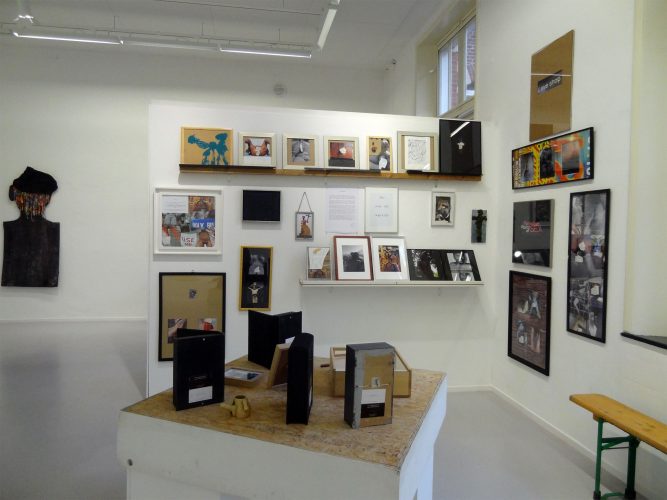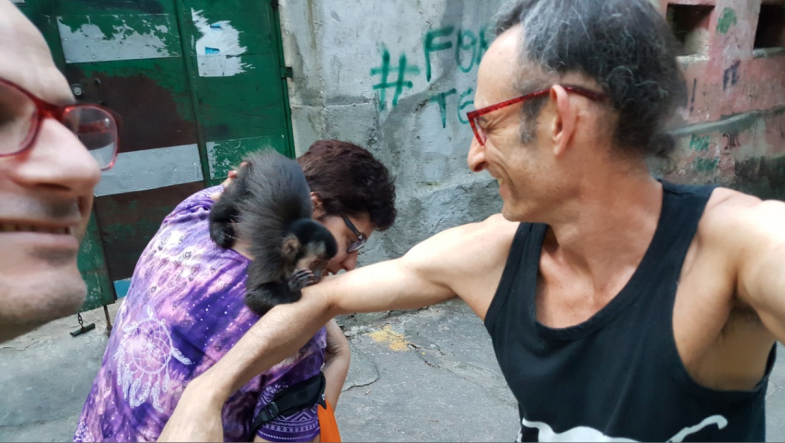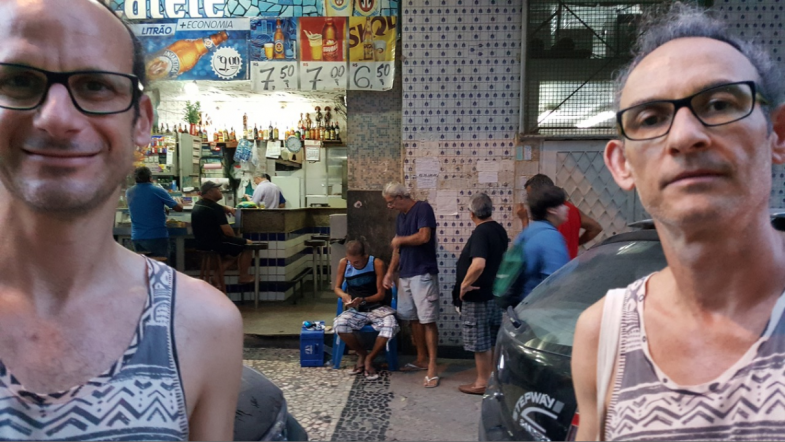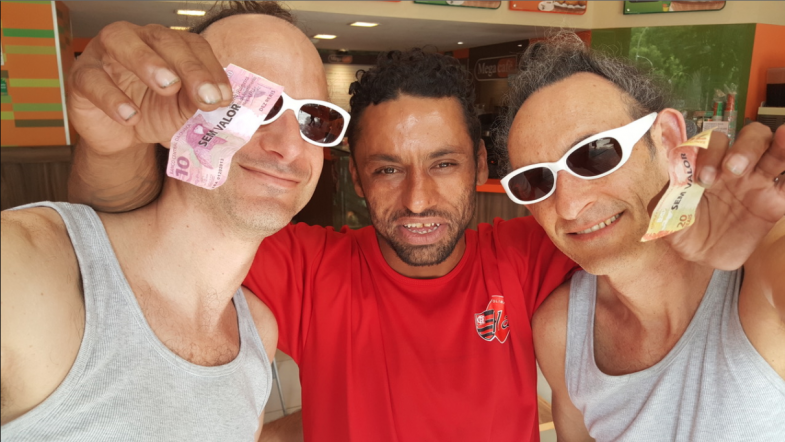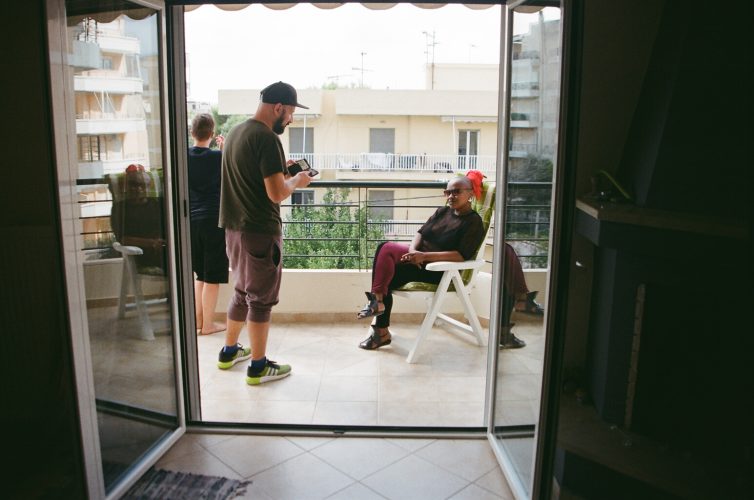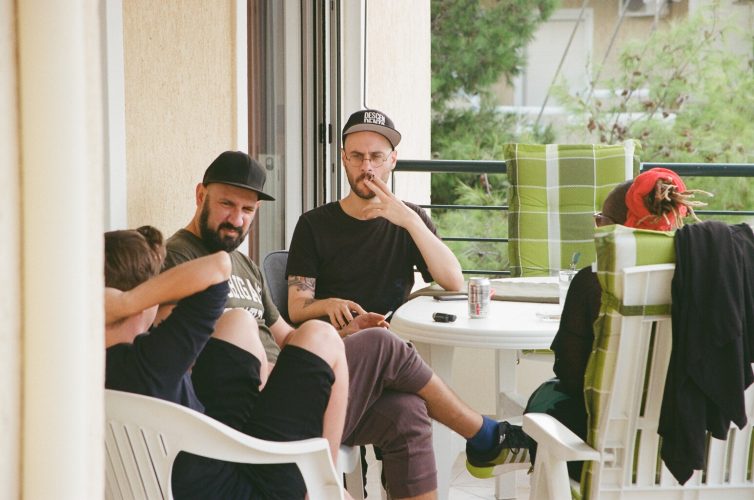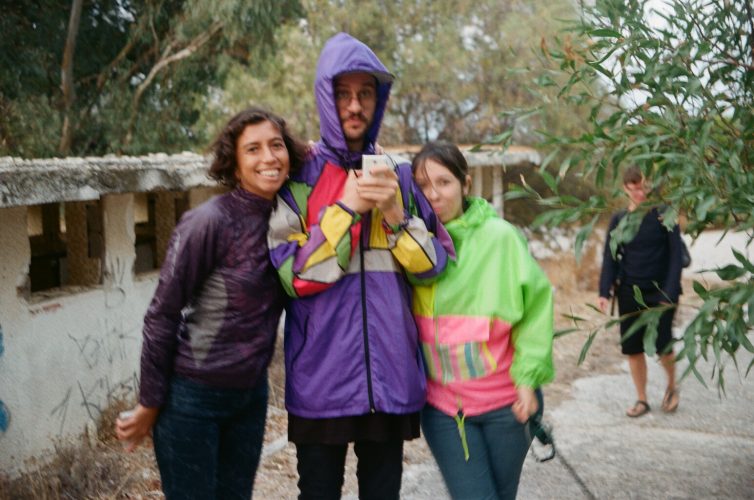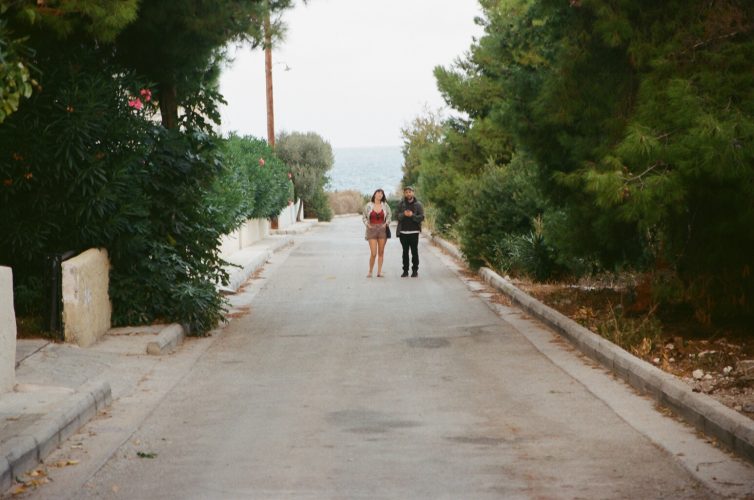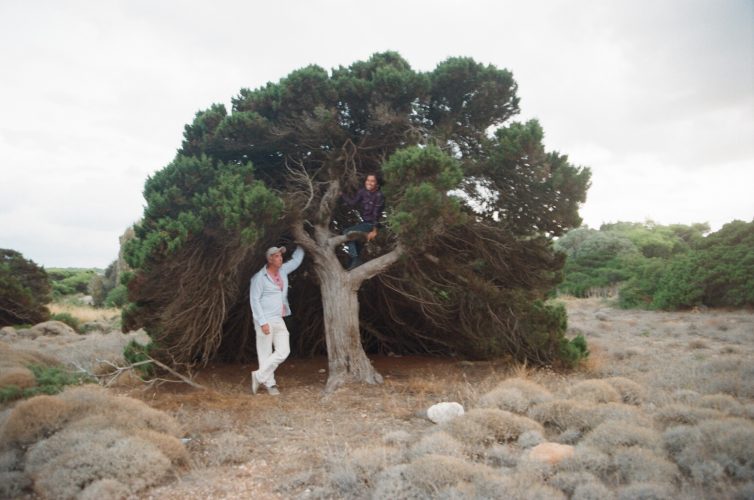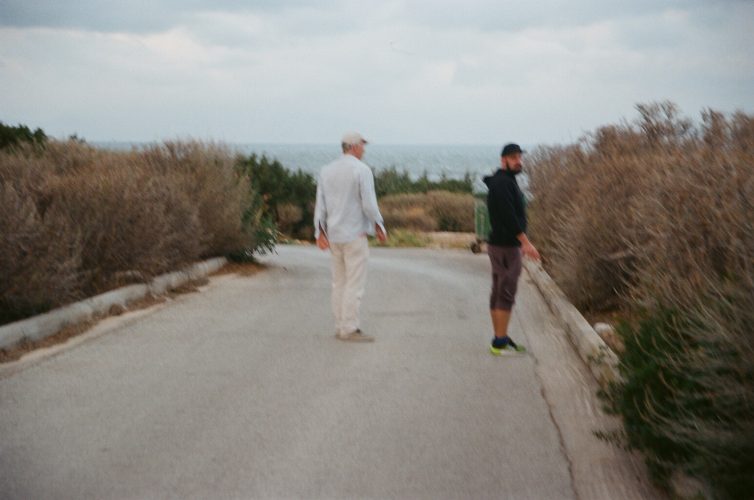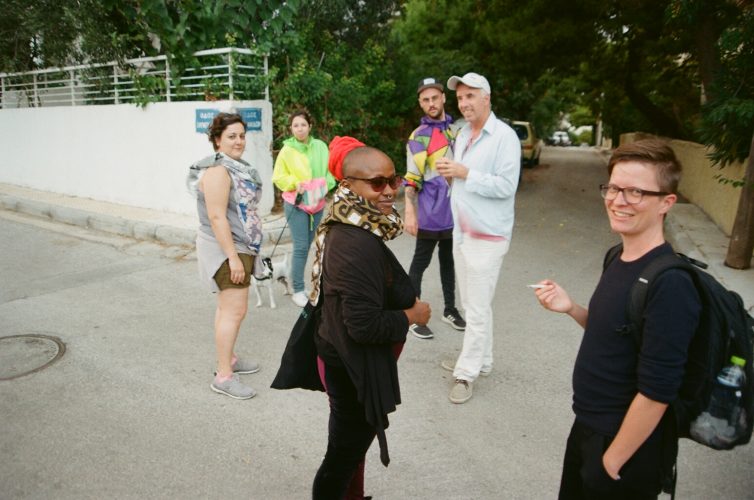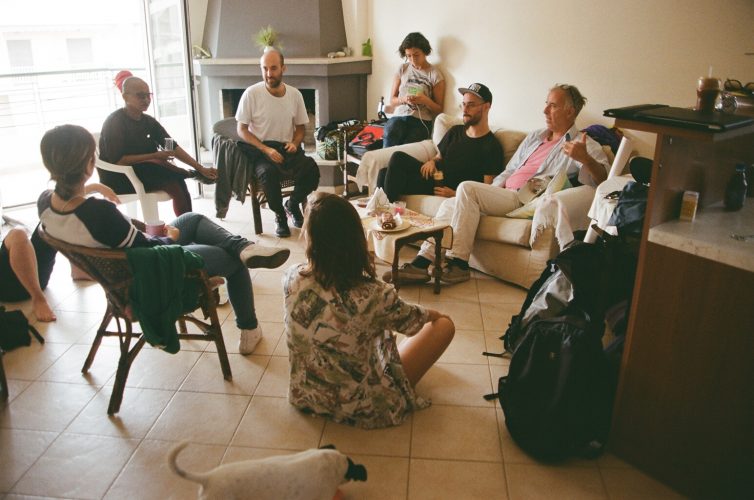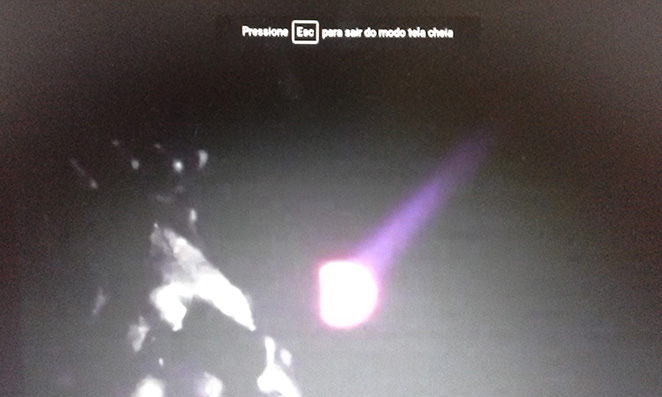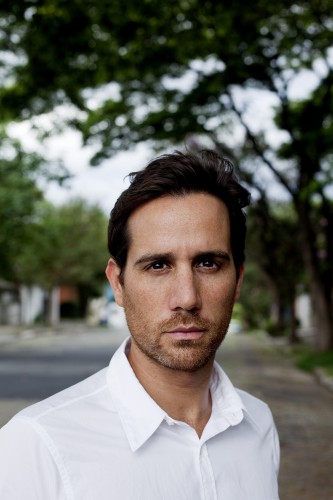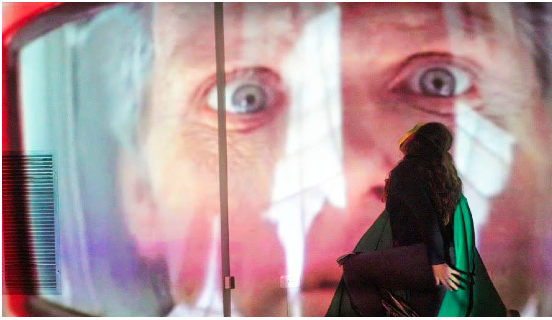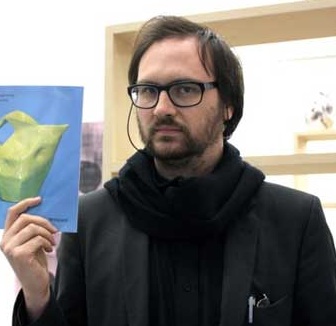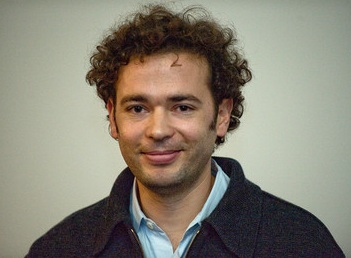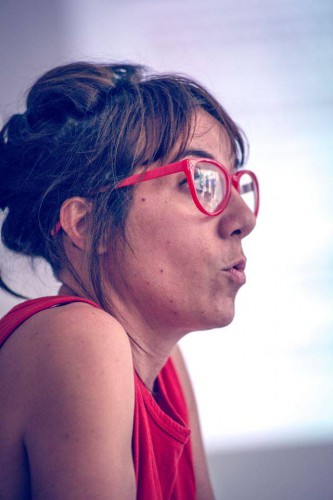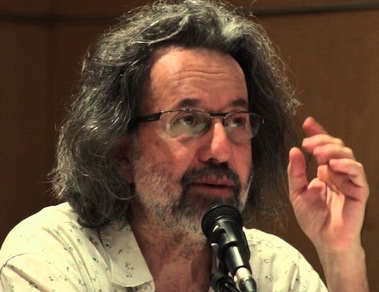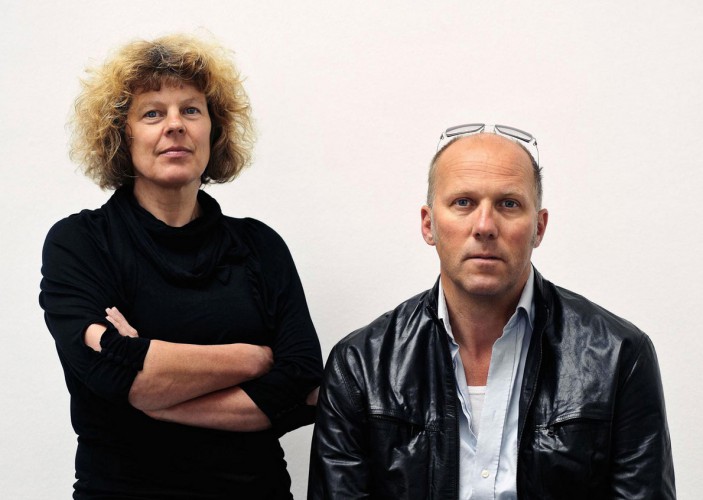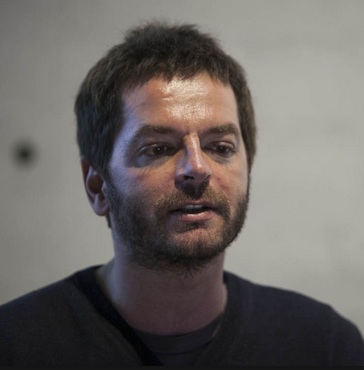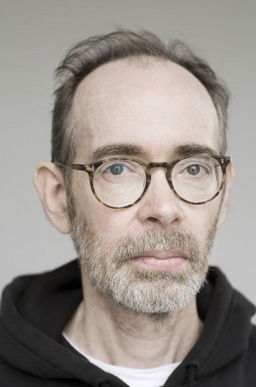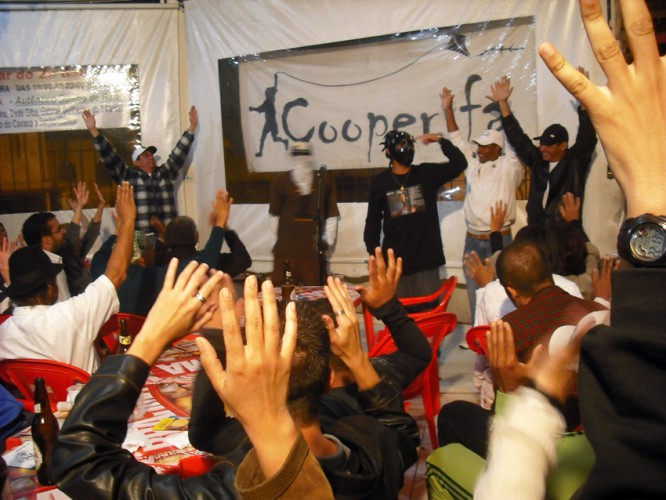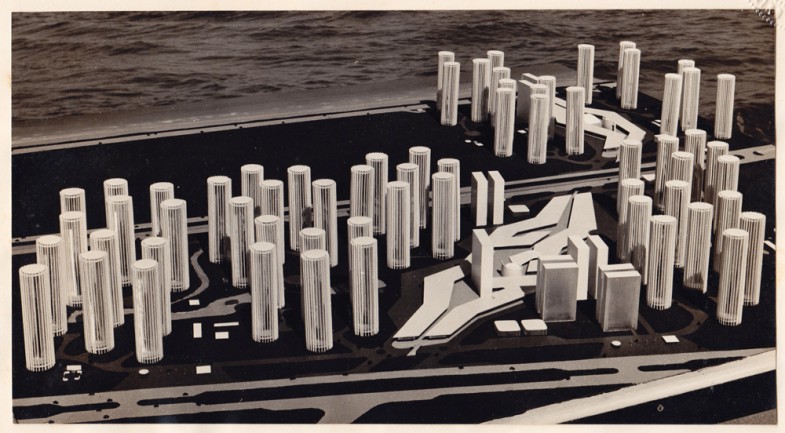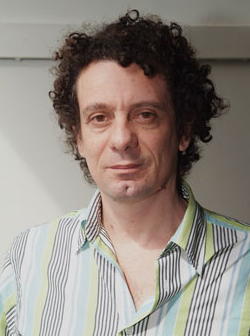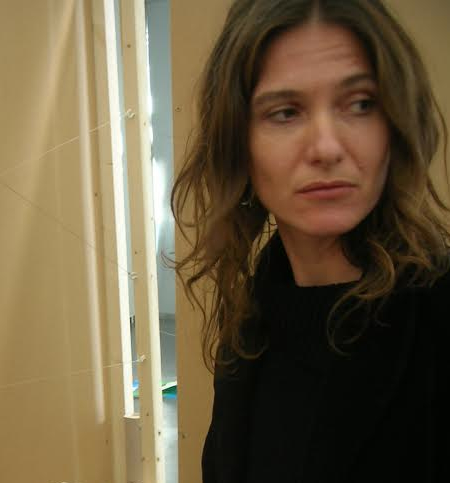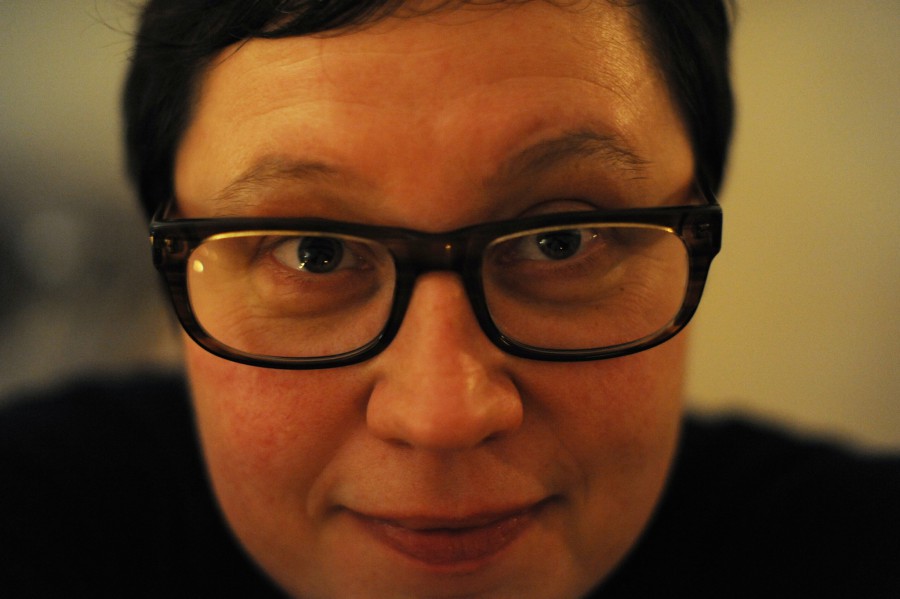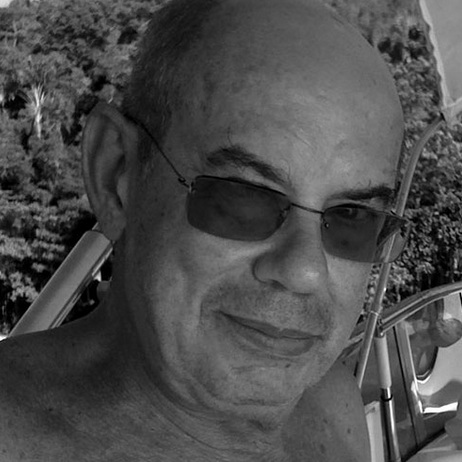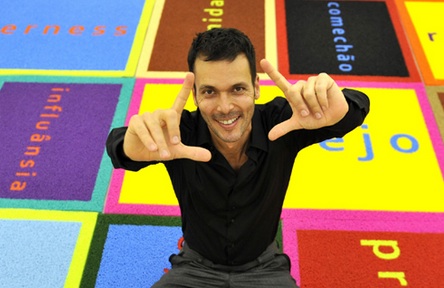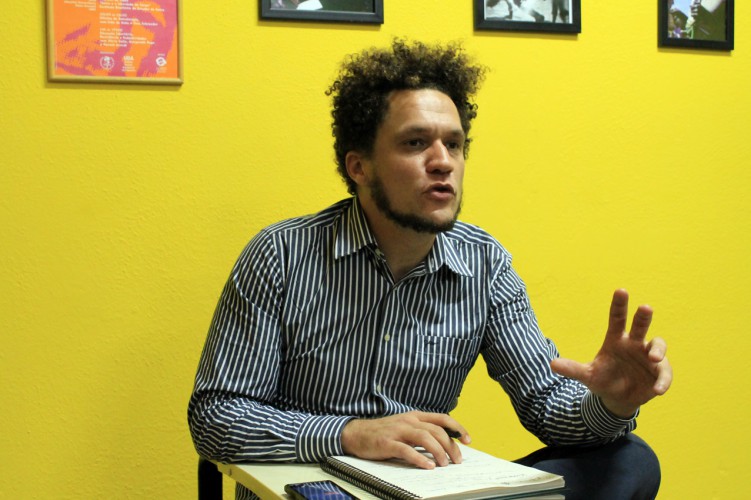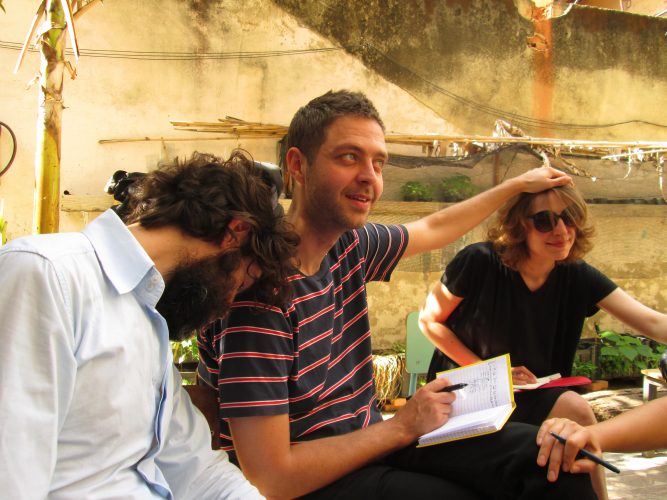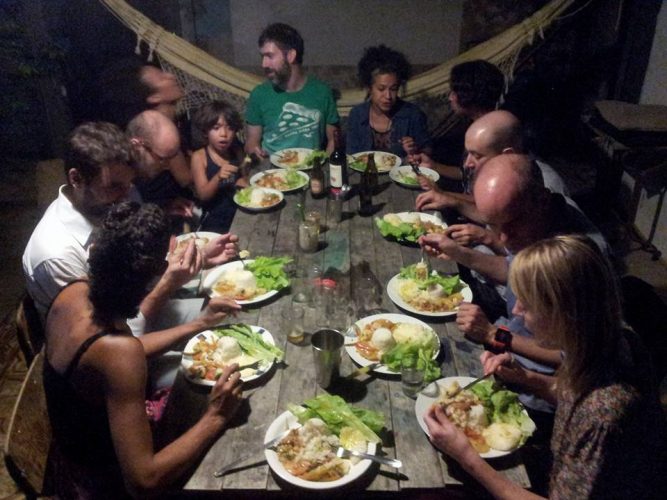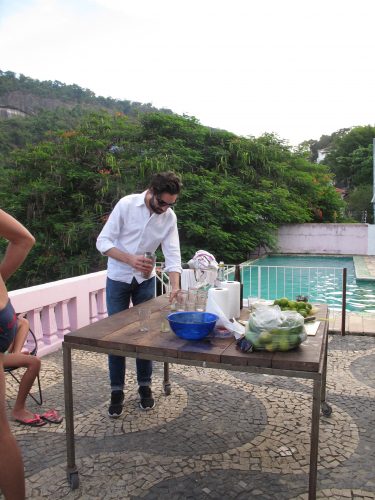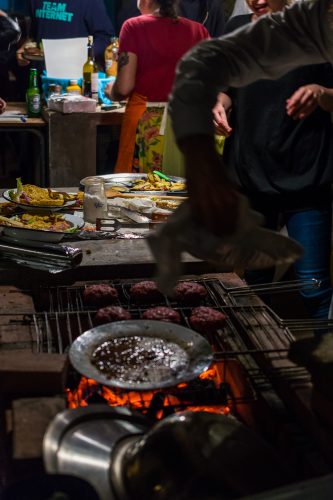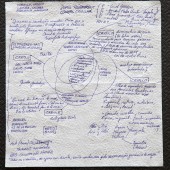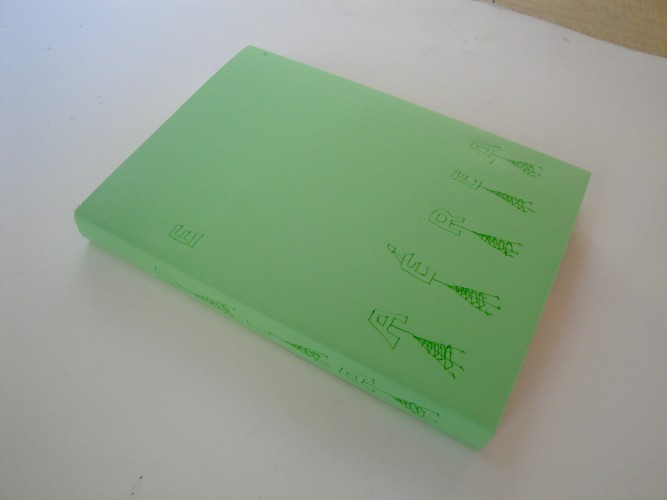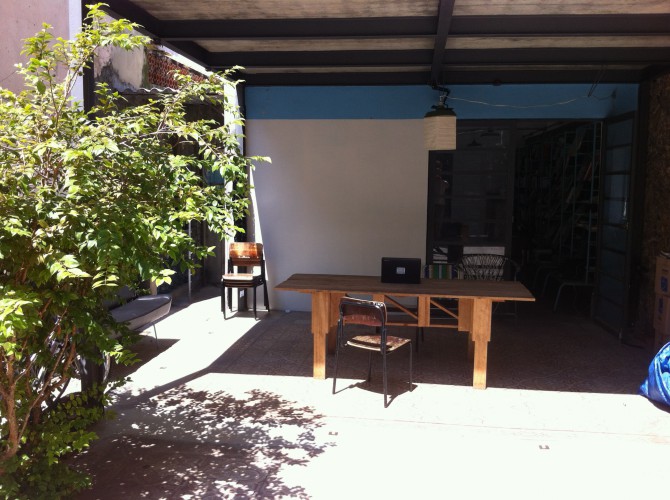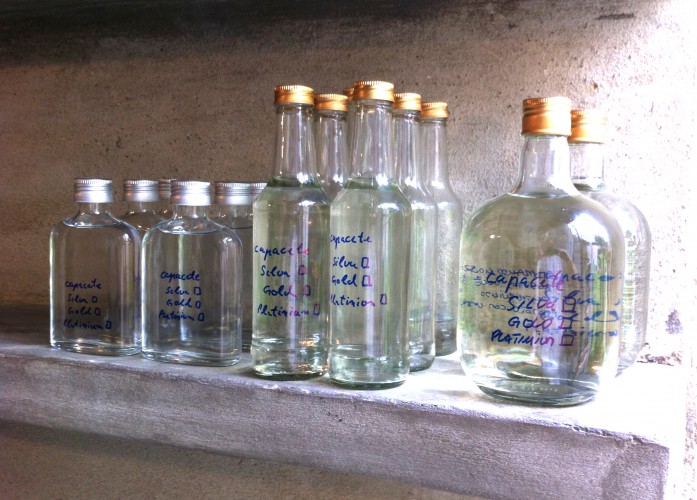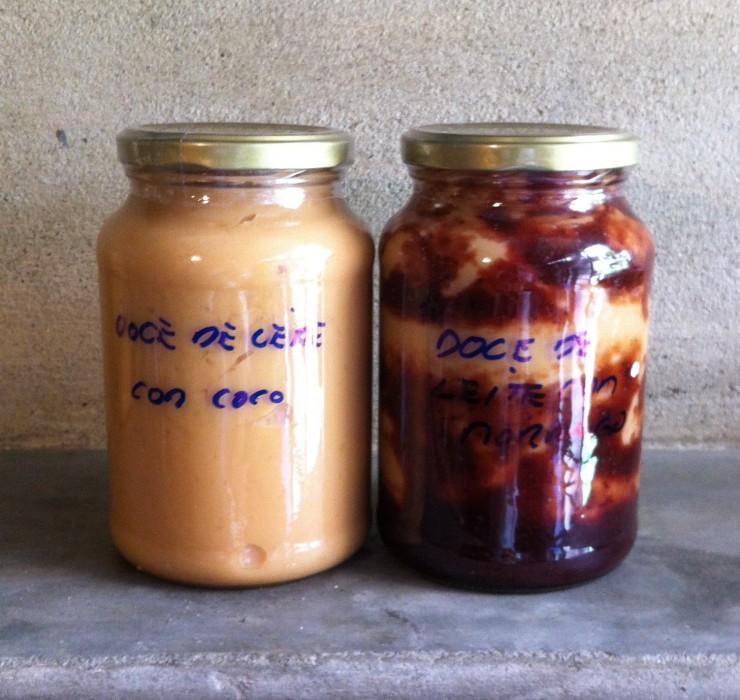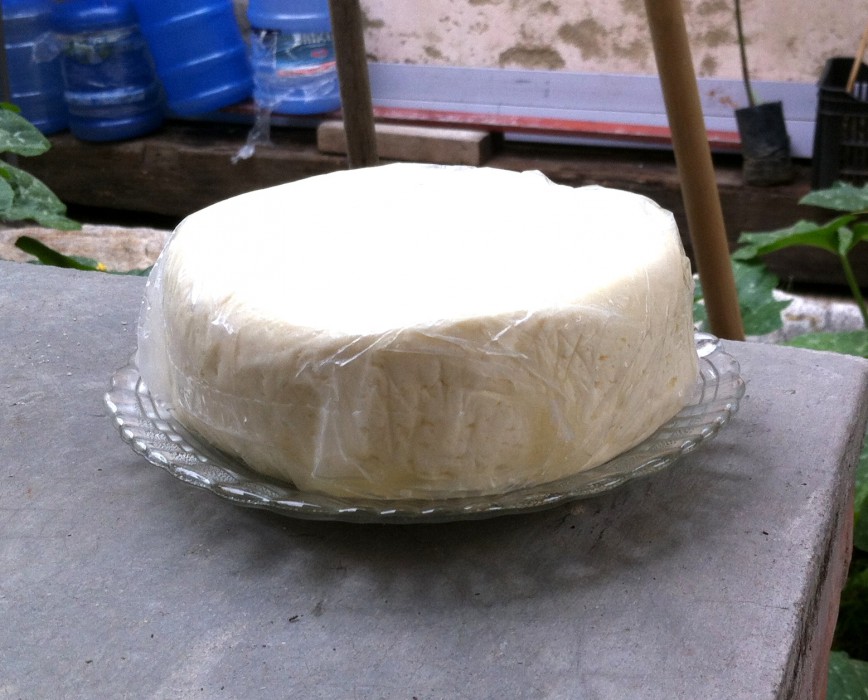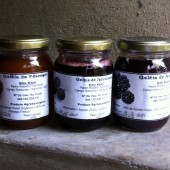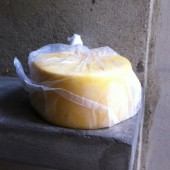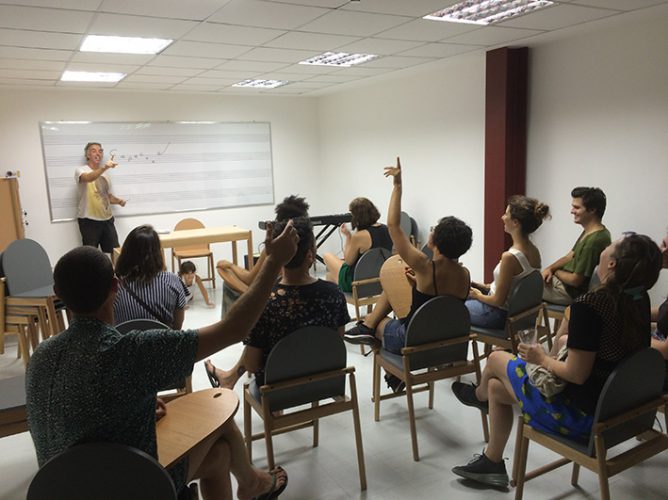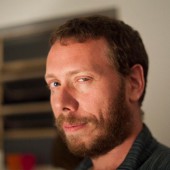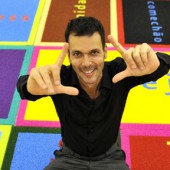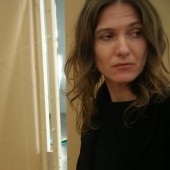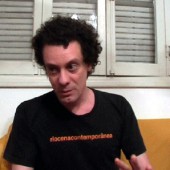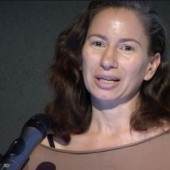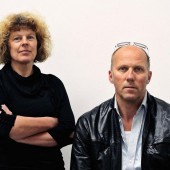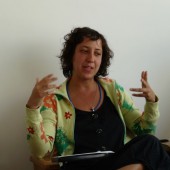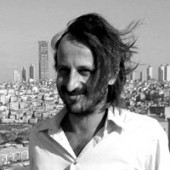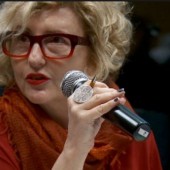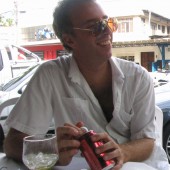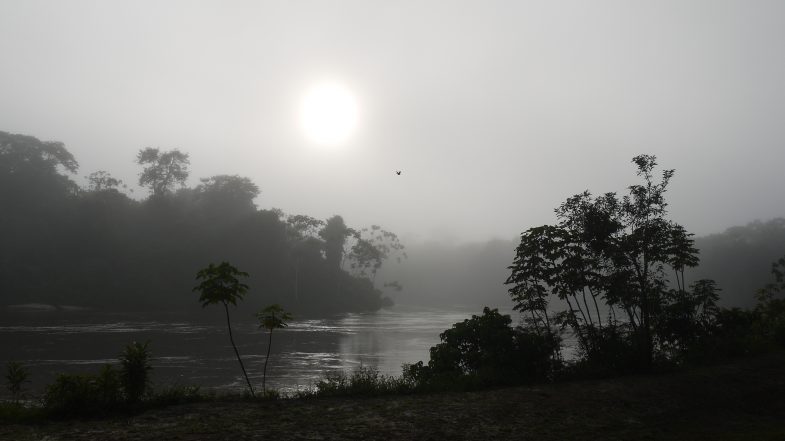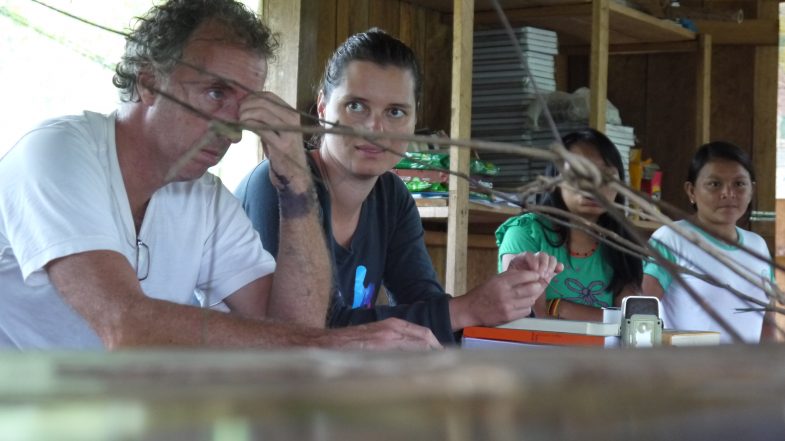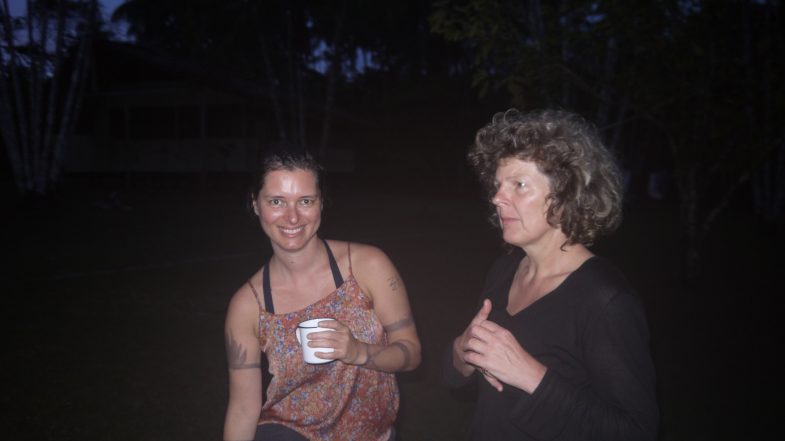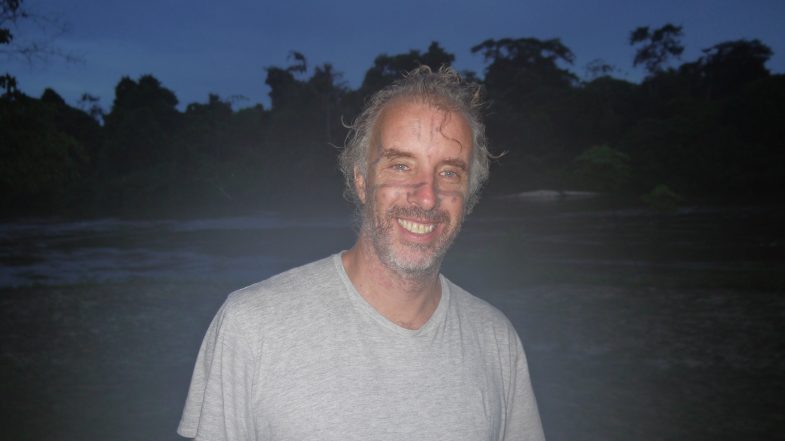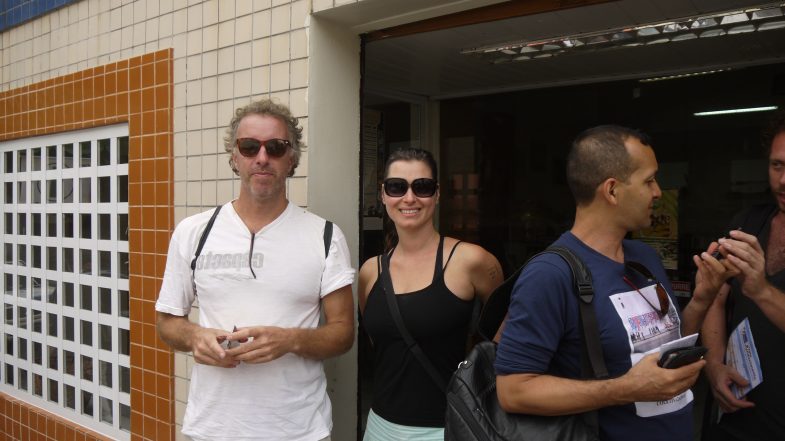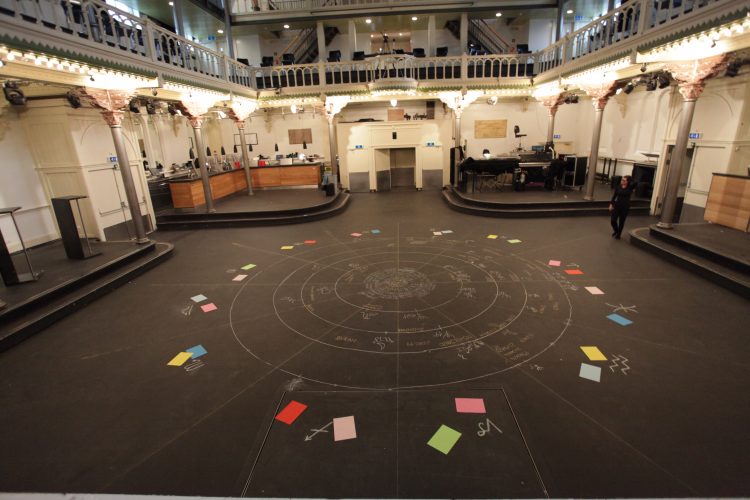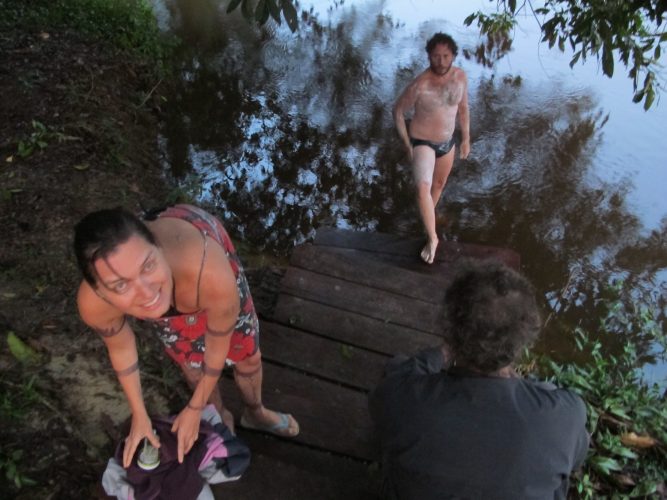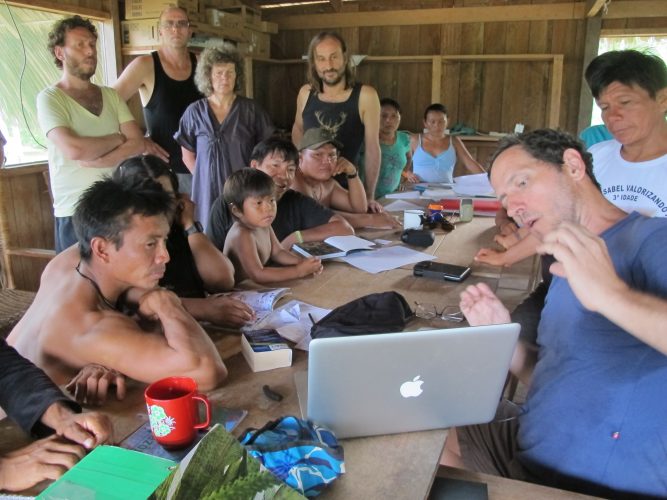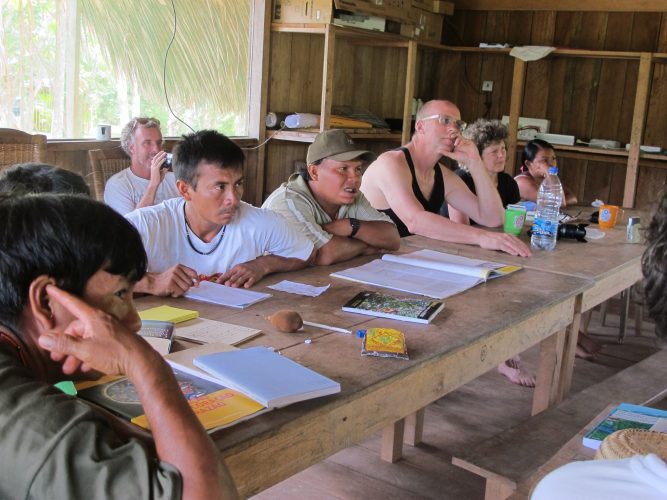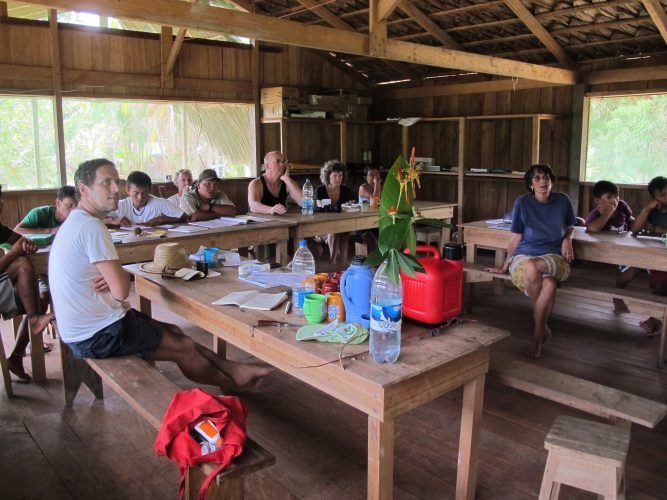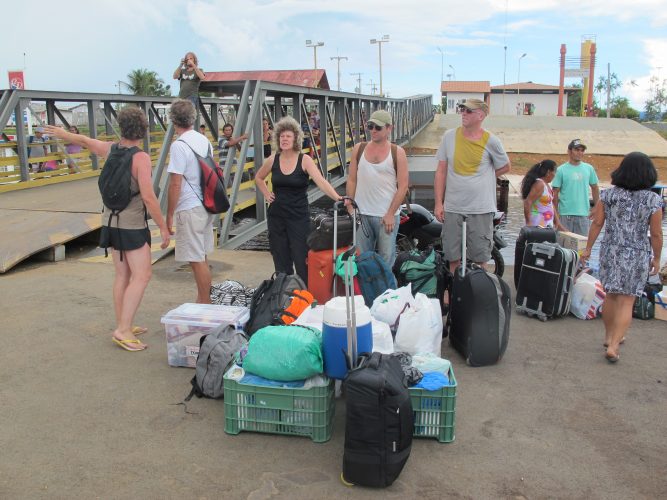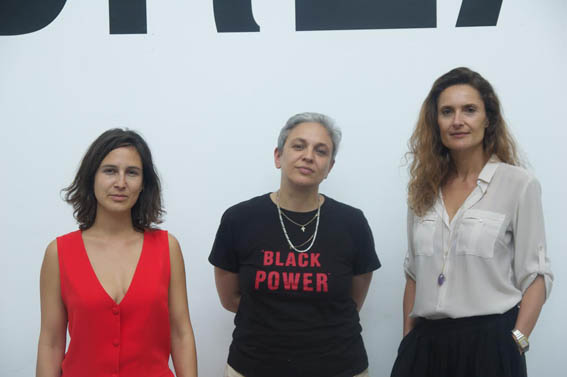
Quarta-feira 17 de junho as 19:30
Alexandra Baudelot vai falar como funciona o Les Laboratoires, o Printemps e o Performing Opposition edition.
Alexandra Baudelot will speak about the way Les Laboratoires works, and the Printemps and the Performing Opposition edition. Why and how we are going to work in relation with another political, sociological and cultural local context, the Rio and Sao Paulo’s one, and the links we can build through our respectives structures. The importance to think in term of locality more than glogablity, localisation than globalisation.
The importance to confront specific local knowledge and practices with other cultural and historical context to go farther than the national point of view.
Les Laboratoires d’Aubervilliers
Les Laboratoires d’Aubervilliers is a place for research and creation, for resources and experimentation, developed in intimate cooperation with its setting (from the most local to the international sense) and with its audiences, and in relationship with the artists. It invents the tools to conceive artistic practices from all fields – visual art, dance, performance, theatre, literature, etc. – viewing them as a process of learning, sharing and experiencing; an intermediary object that is capable of investigating and taking the measure of the most urgent contemporary issues, reinventing ways of being together, while taking a risk and upsetting our approach and our conception of art.
Les Laboratoires d’Aubervilliers is one of those rare places where art is never disconnected from cultural, social and political reality, one of those places committed to differences and plural identities, a place in perpetual motion that takes shape around the artistic projects that it upholds and works to defend.
Setting up projects with artists involves an often lengthy time of research, an absolute must to create strong connections between the artistic projects, the region and people. It is also this concept of time that Les Laboratoires d’Aubervilliers observes and works in in order to invent new methods for public visibility that go beyond simple exhibitions and showings of finished works.
Le Printemps des Laboratoires
Le Printemps des Laboratoires is a yearly invitation to the public. It was developed to be the ideal moment to bring up and debate, both in theory and in practice, the issues that guest artists at Les Laboratoires d’Aubervilliers address. In the form of an artistic tool, it takes place over two days and includes discussions intended to be moments for sharing, performances and workshops, on different scales and in different formats.
This meeting is the opportunity to break down the divide between audiences and specialists, to roll out a singular tool that encourages experiences of art and politics rather than representations of them, the circulation and comparison of ideas rather than their authoritative forms of transmission. While being a critical and artistic condensation and development of les Laboratoires d’Aubervilliers project, this year’s
Printemps des Laboratoires offers an opportunity to nurture research and explore a variety of current artistic, historical and critical contexts, both French and international.
The first instance of the Printemps des Laboratoires (2013), entitled “Commune, Commons, Community”, raised the issue of the commons. Second instance (2014), “Ne travaillez jamais!”, was about links that unite art and work. “Performing Opposition”, the third instance of the Printemps des Laboratoires (June 2015) will explore the forces and shapes of the revolts that left a mark on History in the past ten years, and their role in social transformations. “Performing Opposition” will be particularly interested in practices and strategies developped by artistic performances, as well as political and civil manifestations.
Performing Opposition
The third edition of the Printemps des Laboratoires, Performing Opposition, will be devoted to exploring how art relates to the ‘polis’, in opposition to instituted powers. From the emergence of avant-garde movements in the nineteenth century to artists’ engagement in more recent protest- and social revolt movements, art has been renewing its strategies and its forms of opposition. By putting into perspective certain historical and artistic legacies (agit-prop, spaßguerilla, Situationism, Indignados), Performing Opposition seeks to bring into focus a current dynamic that contributes to opening up gaps in the regulated continuum of public space in order to (re)occupy and appropriate it. The question of ‘performing public space’ is central, especially in the digital age with its changing strategies of visibility and representation. Performing Opposition will be foregrounding the antagonistic movements that reconfigure, across the globe and from one local to another, the map of a power that is now diffuse and molecular — an art that is also capable of eluding its ties to the institution in order to continue to develop therein, in spite of everything, critical and operative strategies.
This edition of the Printemps des Laboratoires will set up a dialogue between diverse experiences and perspectives. Our guests include specialists in the fields of activist movements (Brian Holmes), avant-garde movements (Marc Partouche), digital cultures (Marie Lechner, Nathalie Magnan), and also the links between theatre and political modernity (Diane Scott). These theoretical perspectives will link in with the artists’ testimonies, which will include artists engaged in popular revolts (Burak Arikan), artists participating via their practice in building communities of thought and action (Marinella Senatore), artists using the art institution to propose ways of occupying public space (Thomas Hirschhorn, Renata Lucas) or artists working in the field of theatre, literature or poetry, as a privileged site for observing society and its injustices (Motus, Nathalie Quintane). Finally, we believe it crucial to investigate these problematics from the perspective of the institution, that of the Laboratoires d’Aubervilliers, of course, which seeks to establish the conditions of emergence and support for free artistic forms, but also from the perspective of like-minded centres engaged, via the work they carry out in their site, in building a slow revolution (Beirut, in Cairo).
These discussions will take shape amid a varied programme which will include a musical accompaniment by pianist Alexey Aasantcheef, presenting a set composed of works by Cornelius Cardew, punctuated by revolutionary pieces which the audience will be invited to sing; performances by students of the Oslo Academy of Fine Art; an evening meal open to all; a screening juxtaposing contemporary films (Egyptian filmmakers Jasmina Matwaly and Philip Rizk and the Palestine-based DAAR collective) and a documentary about a major 1970s play (Paradise Now by Living Theater). Prior to this edition of the Printemps des Laboratoires, Turkish artist Burak Arikan will be running a workshop titled “Graph Commons”.
Co-director of les Laboratoires d’Aubervilliers (Paris northern suburbs) since 2013, Alexandra Baudelot has worked for several years as an exhibition curator, editor and author. In 2009 she created and managed the contemporary art platform Rosascape, an independent art centre based in Paris. At Rosascape she curated exhibitions with Katinka Bock, Ulla von Brandenburg, Raymond Gervais, Benoît Maire, Vittorio Santoro, Berger&Berger, and Adrian Dan. She is interested in production strategies, the artistic research process and reflections on the role of artwork and ways of sharing it with the public – through formats such as exhibits, performances, conferences, and publications – for all disciplines.
****
Co-director of les Laboratoires d’Aubervilliers (Paris northern suburbs) since 2013 with Dora Garcia and Mathilde Villeneuve, Alexandra Baudelot has worked for several years as an exhibition curator, editor and author. In 2009 she created and managed Rosascape, a platform for contemporary creation in Paris that straddles multiple spheres as a private art centre and production unit, exploring the contexts of production and reception of works as well as their mode of display by attending to specific notions such as the question of private, intimate space vs public and political space. The decision to house Rosascape in an architecturally defined space — a private, intimate, theatrical space, playing with a tension between interior and exterior space and the domestic character of its surroundings — rather than in a neutral, ‘white cube’ type of exhibition space, stems from a will to perceptibly shift the relationship to artworks and artistic experiences. A critical awareness of the standardisation of exhibition spaces in the context of globalisation, and thus of the standardised relationship between the artwork and the public, led us to seek and occupy a site and experiential sphere of a different kind — a left-field space — and displace, in this way, our relationship to contemporary art. At Rosascape she curated exhibitions with Katinka Bock, Ulla von Brandenburg, Raymond Gervais, Benoît Maire, Vittorio Santoro, Berger&Berger, and Adrian Dan and produced several artists books. Since 2013, as co-director of Les Laboratoires d’Aubervilliers, she develops a work with Mathilde Villeneuve and Dora Garcia based on two factors — a laboratory that research, test out and experiment, and the town of Aubervilliers (at the periphery, on the outskirts, a melting pot of industrial workers, and a major site of immigration). The very particular relationship between these elements is the context in which artists-in-residence make and develop their projects. The collegial approach aims to establish collectives that enable new forms of intersubjectivity to take shape. In collaboration with the co-direction team, she works on developing novel communities that alter and transform according to the shifts and developments in their work. From the very beginning, the Laboratoires d’Aubervilliers has been committed to reducing the gap between informed and uninformed audiences, and to supporting the most complex and hybrid artistic practices while ensuring no one feels excluded. The institution is renowned for the collective productions it has generated, for fostering collaborations between artists across the entire spectrum of disciplines, and for its participatory, community-building projects involving local residents.
——–
Suggestion de publications et films en lien avec le Printemps des
Laboratoires #3
PERFORMING OPPOSITION
La Tribune des Laboratoires
Printemps des Laboratoires #3
Performing Opposition
Edition online : http://fr.calameo.com/read/004372567dbb8e55eab41
Multitudes n°50, Spécial soulèvements, automne 2012
Renverser l’insoutenable, Citton, Yves, 2012
Dictature des marchés, politiques d’austérité, inégalités sociales criantes, catastrophes environnementales, crises démocratiques : de toutes parts nous arrivent les signes de la fin d’un monde. Pour Yves Citton, ce sont les pressions insoutenables que nous inflige un mode de développement fourvoyé qui rendent la situation actuelle invivable. Yves Citton prend la mesure de cet insoutenable à la fois environnemental, éthique, social, médiatique et psychique et propose un nouveau vocabulaire pour nous aider à appréhender les pressions qui nous traversent et nous rendent la vie de plus en plus intenable. À la croisée de la philosophie morale et politique, de l’économie et de la théorie littéraire, cet essai drôle enlevé prend le contre-pied du misérabilisme ambiant en révélant que le renversement de l’insoutenable est déjà inscrit dans la dynamique de nos gestes les plus communs et que tout geste politique prend sa source dans ces deux questions : Comment fais-je pression sans le vouloir ? Comment faire pression en le voulant ? Attentif au rôle de l’image et à l’évolution du discours politique, Yves Citton livre ici les moyens de repenser notre place et notre action dans un processus qui apparemment nous dépasse en montrant que l’on peut tirer parti des dispositifs médiatiques plutôt que de les subir et ainsi, une fois fait le deuil du Grand Soir, de proposer des alternatives à la politique du pire. ?
Le nouvel esprit du capitalisme, Boltanski, Luc, Chiapello, Ève, 2011
Le capitalisme prospère ; la société se dégrade. La croissance du profit s’accompagne de celle de l’exclusion. La véritable crise n’est pas celle du capitalisme, mais celle de la critique du capitalisme. Trop souvent attachée à d’anciens schémas d’analyse, la critique conduit nombre de protestataires à se replier sur des modalités de défense efficaces dans le passé mais désormais largement inadaptées aux nouvelles formes du capitalisme redéployé. Cette crise, Ève Chiapello et Luc Boltanski, sociologues, l’analysent à la racine. Ils tracent les contours du nouvel esprit du capitalisme à partir d’une analyse inédite des textes de management qui ont nourri la pensée du patronat, irrigué les nouveaux modes d’organisation des entreprises : dès le milieu des années 70, le capitalisme renonce au principe fordiste de l’organisation hiérarchique du travail pour développer une nouvelle organisation en réseau, fondée sur l’initiative des acteurs et l’autonomie relative de leur travail, mais au prix de leur sécurité matérielle et psychologique. Ce nouvel esprit du capitalisme a triomphé grâce à la formidable récupération de la «critique artiste» – celle qui, après Mai 68, n’avait eu de cesse de dénoncer l’aliénation de la vie quotidienne par l’alliance du Capital et de la bureaucratie. Une récupération qui a tué la «critique artiste». Comme, dans le même temps, la «critique sociale» manquait le tournant du néocapitalisme et demeurait rivée aux vieux schémas de la production hiérarchisée, on la trouva fort démunie lorsque l’hiver de la crise fut venu. C’est à une relance conjointe des deux critiques complémentaires du capitalisme qu’invite cet ouvrage sans équivalent.
Unleashing the Collective Phantoms : Essays in reverse Imagineering, Holmes, Brian, 2008
These insurgent essays develop and critique some of the cultural and artistic projects that first arose with the worlwide wave of protests, around the turn of the millennium, against what the global South has long called neoliberalism. Dissent and the refusal of a programmed existence return continually to the street, but they also unfold in the intimacy of the imagination. Complex discourses and elaborate fictions pass through images, works, ideas and wild scenarios that hover around the edges of reality; museums, cinemas, books and theatres are only temporary homes for such things, and authors only a convenience. Times leaches away the graffiti of revolt, and the cynicism of power lays a new coat of paint. Yet still the collective phantoms return. These essays engage with the politics of aesthetics and artistic practice. They include “Cartography of Excess,” “Flexible Personality and Networked Resistance,” “Psycho-geography and the Imperial Infrastructure,” “The Revenge of the Concept,” “Artistic Autonomy and Communicaton Society,” “Reverse Imagineering,” “Transparency and Exodus,” “Three Proposals for a Real Democracy,” and more, from an author who is becoming a vital contributor to contemporary cultural theory and global political struggles.
New Public Spaces: Dissensual Political and Artistic Practises in the Post-Yugoslav Context, 2010
Other Possible Worlds : Proposals on this Side of Utopia [texte imprimé] / Rüb, Christine, Editeur scientifique. – Berlin : argobooks, 2011
Which roles can art projects, art spaces, self-organized academies and labs play in developing conceptions of the world that go beyond purely economic globalization? Projects from various parts of the world are invited to propose and test out other realities of life and world views, from small artistic attempts to social experimentation. Topics such as dealing with cultural differences, climate change, processes of levelling out and confusing complexities form the basis for a common space in which to rise questions.
The basis for Other Possible Worlds – Proposals on this Side of Utopia is a collection of ideas, concepts, models, terms, projects, kits and modes of acting. It is conceived as a pool for further projects in other parts of the world, it is open to further extension and it allows for varied formats. The NGBK is considered as a common and active space of inquiry for different formats like artistic contributions and installations, workshops, presentations, talks and video screenings.
Le Mouvement – Performing the City [texte imprimé] / Cvejic, Bojana, Auteur; Lepecki, André, Auteur; Petresin-Bachelez, Natasa, Auteur; Verwoert, Jan, Auteur. – Berlin : Distanz, 2014.
Since 1954 this quinquennial is a must in the field of contemporary art in public space. For its 60th anniversary in 2014 the Swiss Sculpture Exhibition in Biel/Bienne will replace the static presentation of artworks by performances in public space thus questioning the state of static representation and public involvement. Curated by Gianni Jetzer and Chris Sharp.
Public sphere by performance [texte imprimé] / Cvejic, Bojana, Auteur; Vujanovic, Ana, Auteur. – Berlin [Allemagne] : B_books ; Aubervilliers : les Laboratoires d’Aubervilliers, 2012. – 181p.: dessins N&B.
Cet ouvrage livre les réflexions de deux membres du collectif de Belgrade Teorija koja Hada (Walking Theory), élaborées au cours d’une résidence aux Laboratoires d’Aubervilliers. Bojana Cvejić et Ana Vujanović y explorent les manifestations de l’idéologie politique dans l’espace public, étayant leur réflexion par des exemples puisés dans l’histoire des régimes fascistes et communistes du XXe siècle, de l’ethno-nationalisme serbe et du système capitaliste néolibéral. S’éloignant d’une critique linguistique de l’idéologie basée sur une analyse de l’acte discursif, elles suggèrent qu’elle est incarnée et performée par les corps, notamment sous la forme de chorégraphies collectives et individuelles.
L’imaginaire de la Commune, Kristin Ross, ed. La Fabrique, 2015 : Traduit de l’anglais par Étienne Dobenesque
William Morris, Élisée Reclus, Pierre Kropotkine : ce ne sont pas les premiers noms qui viennent à l’esprit s’agissant de la Commune de Paris. S’ils tiennent dans ce livre un rôle important, c’est que pour Kristin Ross, la Commune déborde l’espace-temps qui lui est habituellement attribué, les 72 jours écoulés et les fortifications sur lesquelles elle a combattu. L’Imaginaire signifie que cet événement révolutionnaire n’est pas seulement international mais qu’il s’étend bien au-delà du domaine de la politique, vers l’art, la littérature, l’éducation, la relation au travail. Ce n’est pas un hasard si les trois personnages principaux du livre sont un poète-artiste, un géographe et un scientifique-anarchiste russe : la Commune n’est pas un simple épisode de la grande fable républicaine, c’est un monde nouveau qui s’invente pendant ces brèves semaines, un monde qui n’a pas fini de hanter les uns et d’inspirer les autres.
Eric Hazan, La dynamique de la révolte, Sur des insurrections passées et d’autres à venir, La Fabrique éditions, mars 2015
Partout dans le monde les peuples se rebellent. Partout en Europe, les peuples se révoltent. Sauf en France… Le seul pays occidental à se doter d’une loi de surveillance de ses citoyens digne des pires dictatures, sans que cela ne provoque d’explosion de colère -à peine une vague d’inquiétude vite rabrouée par des socialos plus réactionnaires que jamais.
Partout dans le monde les peuples tentent de se saisir de leur destin. Sauf en France, où aucune révolution ne paraît possible. Où il ne se passe rien. Bien que le quotidien y devienne invivable. Faut-il repenser l’action commune ?
Eric Hazan s’est penché, moins sur cette question que sur celle du surgissement de l’étincelle qui viendra à coup sûr mettre le feu à la plaine française.
Living as Form: Socially Engaged Art from 1991-2011 by Nato Thompson, 2012
Over the past twenty years, an abundance of art forms have emerged that use aesthetics to affect social dynamics. These works are often produced by collectives or come out of a community context; they emphasize participation, dialogue, and action, and appear in situations ranging from theater to activism to urban planning to visual art to health care. Engaged with the texture of living, these art works often blur the line between art and life. This book offers the first global portrait of a complex and exciting mode of cultural production–one that has virtually redefined contemporary art practice. Living as Form grew out of a major exhibition at Creative Time in New York City. Like the exhibition, the book is a landmark survey of more than 100 projects selected by a thirty-person curatorial advisory team; each project is documented by a selection of color images. The artists include the Danish collective Superflex, who empower communities to challenge corporate interest; Turner Prize nominee Jeremy Deller, creator of socially and politically charged performance works; Women on Waves, who provide abortion services and information to women in regions where the procedure is illegal; and Santiágo Cirugeda, an architect who builds temporary structures to solve housing problems.
Living as Form contains commissioned essays from noted critics and theorists who look at this phenomenon from a global perspective and broaden the range of what constitutes this form.
Théâtres en lutte : le théâtre militant en France des années 1960 à nos jours, Olivier Neveux, ed. La Découverte, 2014
Depuis les années 1960, de nombreuses expériences théâtrales ont revendiqué en France un clair dessein politique. Inscrit au cœur des luttes (anti-impérialistes, ouvrières, féministes, immigrées, homosexuelles, altermondialistes, etc.), ce théâtre militant s’est donné pour but de contribuer, à sa manière, aux combats d’émancipation de son temps. Injustement déprécié ou ignoré, il constitue pourtant tout un pan de l’histoire théâtrale. Et c’est cette histoire inédite et passionnante que l’on découvrira dans cet ouvrage extrêmement documenté. Comment représenter la colère, l’injustice et l’espérance ? Quelles formes pour dire la lutte ou expliquer les mécanismes du capitalisme ? Et à qui de telles représentations doivent-elles être destinées ? Contrairement aux idées reçues, le théâtre militant n’a jamais cessé d’inventer des solutions dramaturgiques et scéniques pour mettre en scène le présent : un présent à transformer. Héritier d’Erwin Piscator, de Bertolt Brecht et des troupes d’agit-prop soviétiques, ce théâtre n’est pas homogène : il est traversé d’options politiques et esthétiques diverses, voire contradictoires, d’Armand Gatti à Augusto Boal, en passant par Alain Badiou, André Benedetto et de nombreux collectifs (la Troupe Z, Al Assifa, le Levant, le Groupov…). Revenir sur ces propositions, sur leurs richesses et leurs impasses, c’est tout autant s’opposer à l’oubli que tenter d’ouvrir des pistes pour le théâtre militant d’aujourd’hui.
Politiques du spectateur : les enjeux du théâtre politique, Neveux, Olivier, 2013
Face au monde, ses crises et son devenir, un théâtre s’invente. Il réagit, dénonce, explique, illustre, propose : ce théâtre est politique. À ce titre, il s’inscrit dans une longue histoire, bien souvent déconsidérée : celle d’un théâtre qui prend acte des batailles de son temps. Mais ce théâtre d’aujourd’hui n’est pas homogène, il défend des orientations politiques dissemblables et fait en particulier de la place accordée au spectateur le lieu d’enjeux différents. En effet, la politique au théâtre se découvre aussi, de façon décisive, dans le rapport que le spectacle entend entretenir avec son spectateur. C’est à travers ce prisme qu’Olivier Neveux propose d’analyser le champ théâtral politique à l’heure du néolibéralisme. Comment le théâtre « transgressif » conçoit-il ses spectateurs ? Quelles facultés le théâtre « postdramatique » entend-il solliciter ? Que nous apprennent ces volontés de brusquer, sensibiliser, éclairer, mobiliser le spectateur ? Dans leur diversité, quelles conceptions de l’émancipation tous ces théâtres soutiennent-ils ? Car c’est bel et bien une interrogation sur la possibilité de l’émancipation et la part que peut y prendre le théâtre qui anime cet ouvrage : celle du spectateur, de l’artiste et de l’oeuvre émancipés. Réfléchir aux politiques du spectateur signifie alors s’intéresser tout autant aux politiques que le théâtre défend, à celles qu’il applique et aux définitions implicites qu’il propose, par là, de la politique.
Performing Opposition : Modern Theater and the Scandalized Audience by Neil Blackadder
Modern theater history is punctuated by instances of scandalized audience members disrupting and in some cases suspending the first production of a new play. Such incidents are usually dismissed as riots, as self-evident displays of philistinism. Neil Blackadder’s intriguing new study reveals them in fact to be multifaceted conflicts, showing the ways in which these protesters-acting against plays by such notables as Jarry, Synge, and Brecht-creatively devised and enacted resistance through verbal rejoinders, physical gestures, and organized group demonstrations.
Performing Opposition draws on reviews, memoirs, interviews, and court records to present engaging and insightful accounts of these clashes—clashes that Blackadder proposes as a unique and distinct category of event in a time when unprecedentedly restrained norms of auditorium behavior coincided with a regeneration of writing for the stage. Offering the first detailed examination of affronted theatergoers’ counter-performances, the volume represents an intriguing illumination of a largely overlooked aspect of performed drama and its history.
Le théâtre des opprimés, d’Augusto Boal, 1971
L’être humain devient humain quand il invente le théâtre. La profession théâtrale, qui appartient à quelques-uns, ne doit pas cacher l’existence et la permanence de la vocation théâtrale, qui appartient à tous. Le théâtre est une vocation pour tout être humain.
Le théâtre de l’opprimé est un système d’exercices physiques, de jeux esthétiques, de techniques d’images et d’improvisations spéciales, dont le but est de sauvegarder, développer et redimensionner cette vocation humaine, en faisant de l’activité théâtrale un outil efficace pour la compréhension et la recherche de solutions à des problèmes sociaux et personnels.
Les années 10 de Nathalie Quintane (ed. La Fabrique), 2014
Marc Partouche, La ligne oublié, ed. Al Dante, 2004
De la « vie de bohème » au situationnisme, une histoire de l’art surprenante et indispensable : celle des regroupements dits « secondaires » qui n’ont cessé, depuis le milieu du XIXe siècle, de saper l’ordre social et culturel. Des Hydropathes au Surréalisme, en passant par le cabaret du Chat Noir et la Pataphysique, Marc Partouche renoue le fil subversif et humoristique liant la modernité du XIXe siècle et les avant-gardes du XXe.
La « lignée oubliée » est celle des artistes classés comme « mineurs » par une histoire officielle qui oppose systématiquement sérieux et humour, culture haute et culture basse. Refusant l’académisme sclérosant, Marc Partouche s’attache à ces pratiques artistiques nées dans les cabarets de Montmartre et Saint-Germain-des-Prés, et considérées comme inassignables et infréquentables : l’art de la Bohème, des Hydropathes à Fluxus en passant par le lettrisme et le surréalisme, des salons caricaturaux du XIXe aux foires internationales d’Art contemporain du XXe siècle.
Playgrounds, Reinventing the square, ed. Museo Nacional Centro de Arte Reina Sofía and Siruela, 2014
Judith Butler : Excitable Speech. A Politics of the Performative
http://monoskop.org/images/5/54/Butler_Judith_Excitable_Speech_A_Politics_of_the_Performative_1997.pdf
Walter Lippmann, Public Opinion (1922)
Walter Lippmann, Phantom Public (1925)
John Dewey, Le public et ses problèmes (1927)
Jürgen Habermas, L’espace public (1962)
Hannah Arendt, La condition humaine (1958 – cf distinction faite entre sphère privée et public)
Judith Butler, Qu’est-ce qu’une vie bonne (2012) – un résumé du livre là: http://www.franceculture.fr/emission-l-essai-et-la-revue-du-jour-judith-butler-revue-vacarme-2014-05-06)
Bojana Cvejic, Ana Vujanovic, Public Sphere By Performance (2012, publié par Labos)
Hannah Davis Taïeb et autres, Espaces publics, Paroles publiques au Magrheb et au Machrek, 1997
Dorothea von Hantelmann, How to Do Things with Art – The Meaning of Art’s Performativity
Jan Zienkowski, Analysing political Engagement
J.L Austin, How TO DO Things With Words
Augusto Boal, Theater of the Oppressed
Hacker, Hoaxer, Whistleblower, Spy / The many faces of the anonymous
Mikkel Bolt Rasmussen & Jakob Jacobsen, Expect Anything, Fear Nothing / The Situationnist Movement in Scandinavia and Elsewhere
Molly Sauter, The Coming Swarm
Schechner, Performance theory
Film online
Paradise Now : The Living Theatre (1969)
Marty Topp et Melvin Clay [ 46 mn ]
http://ubu.com/film/living.html
Common Assembly: Deterritorializing the Palestinian Parliament
DAAR [ 15 mn ]
http://www.decolonizing.ps/site/
Out on the streets (2013)
Jasmina Metwaly et Philip Rizk [ 70 mn ]

